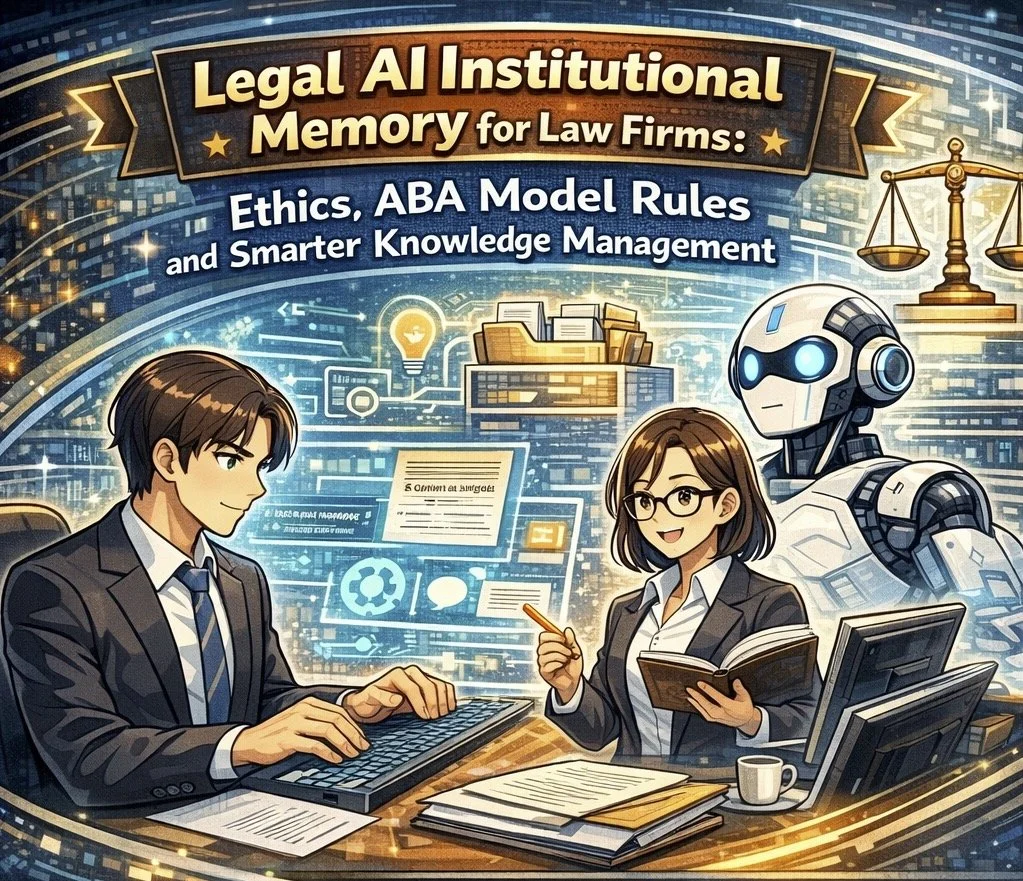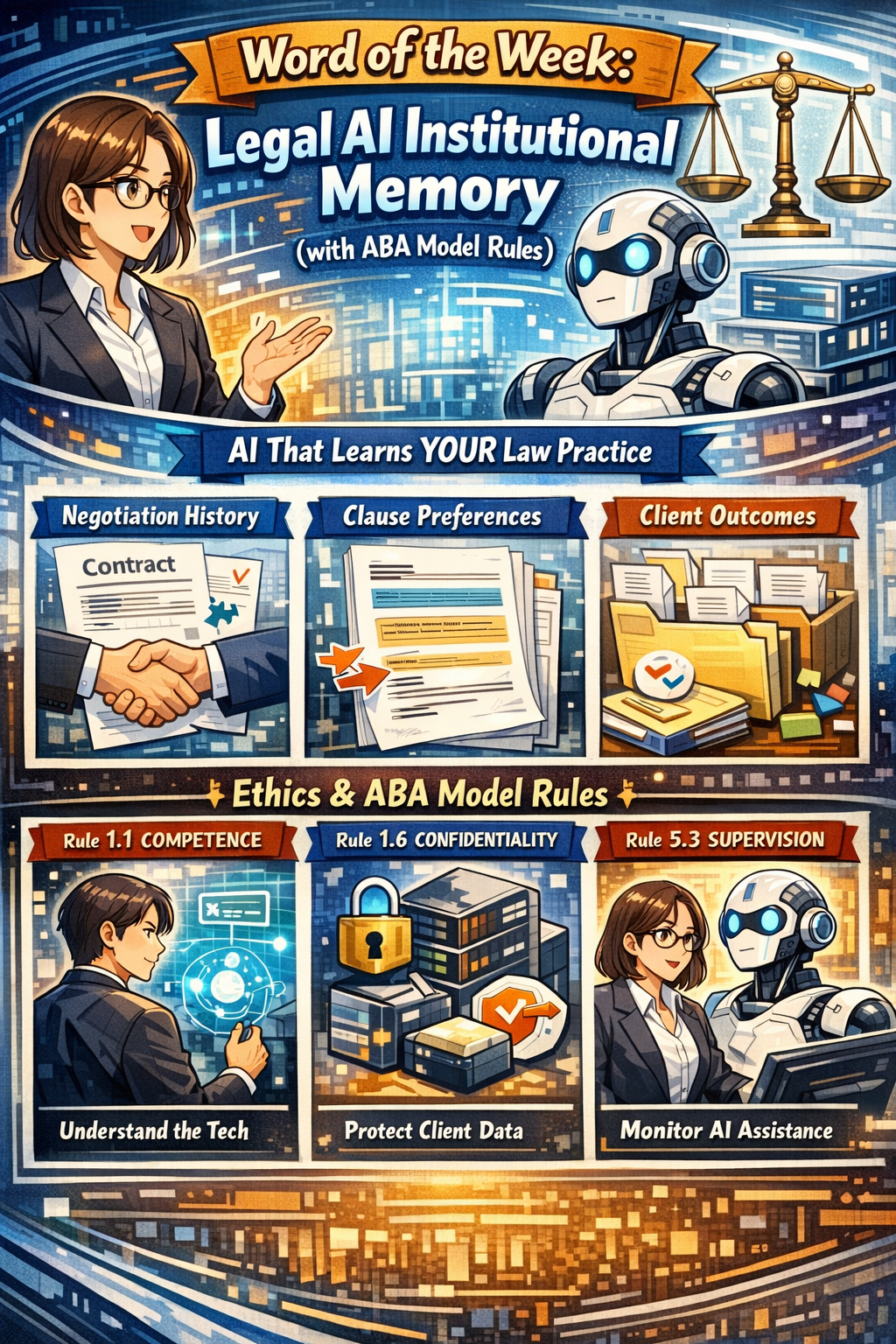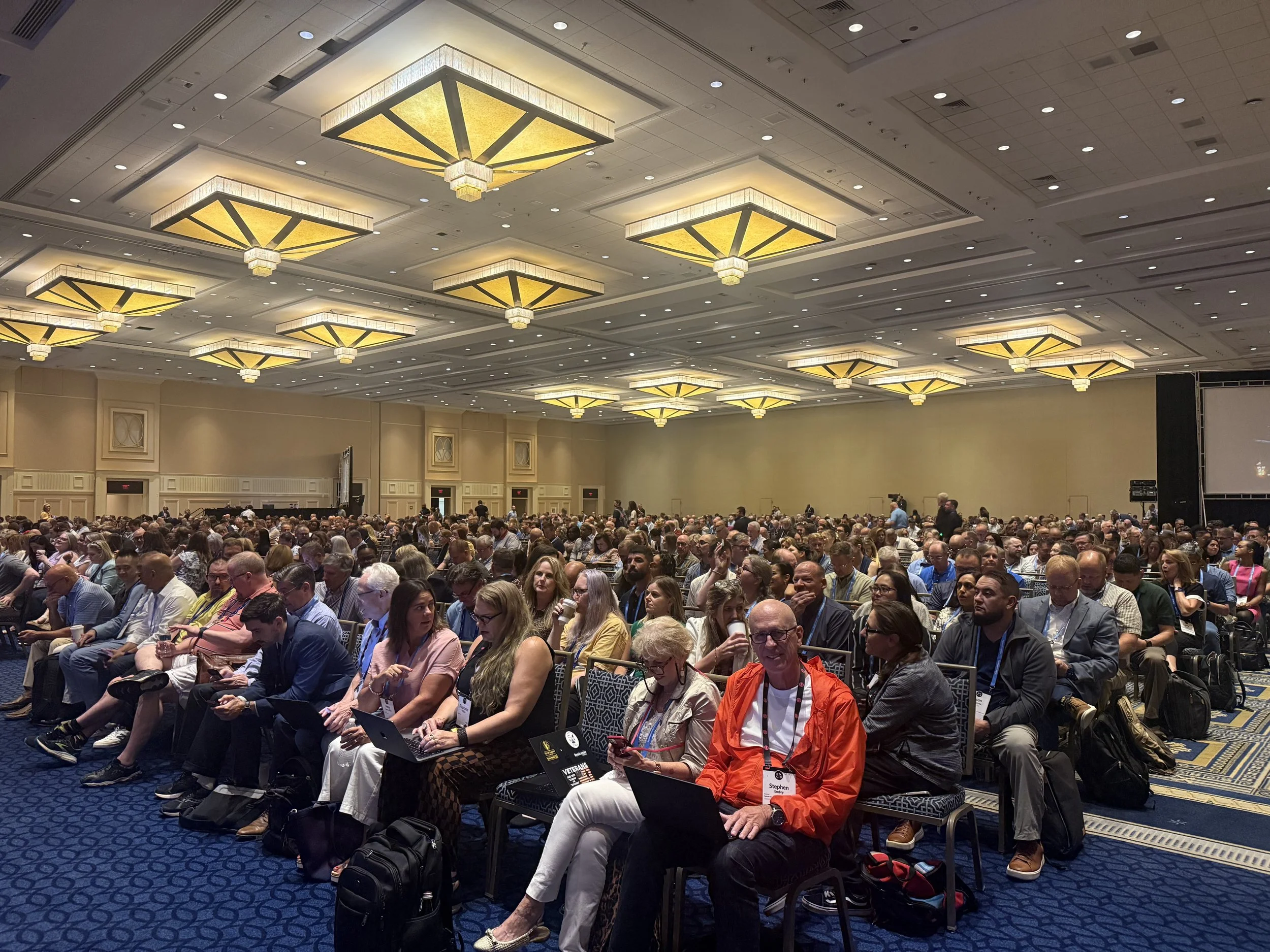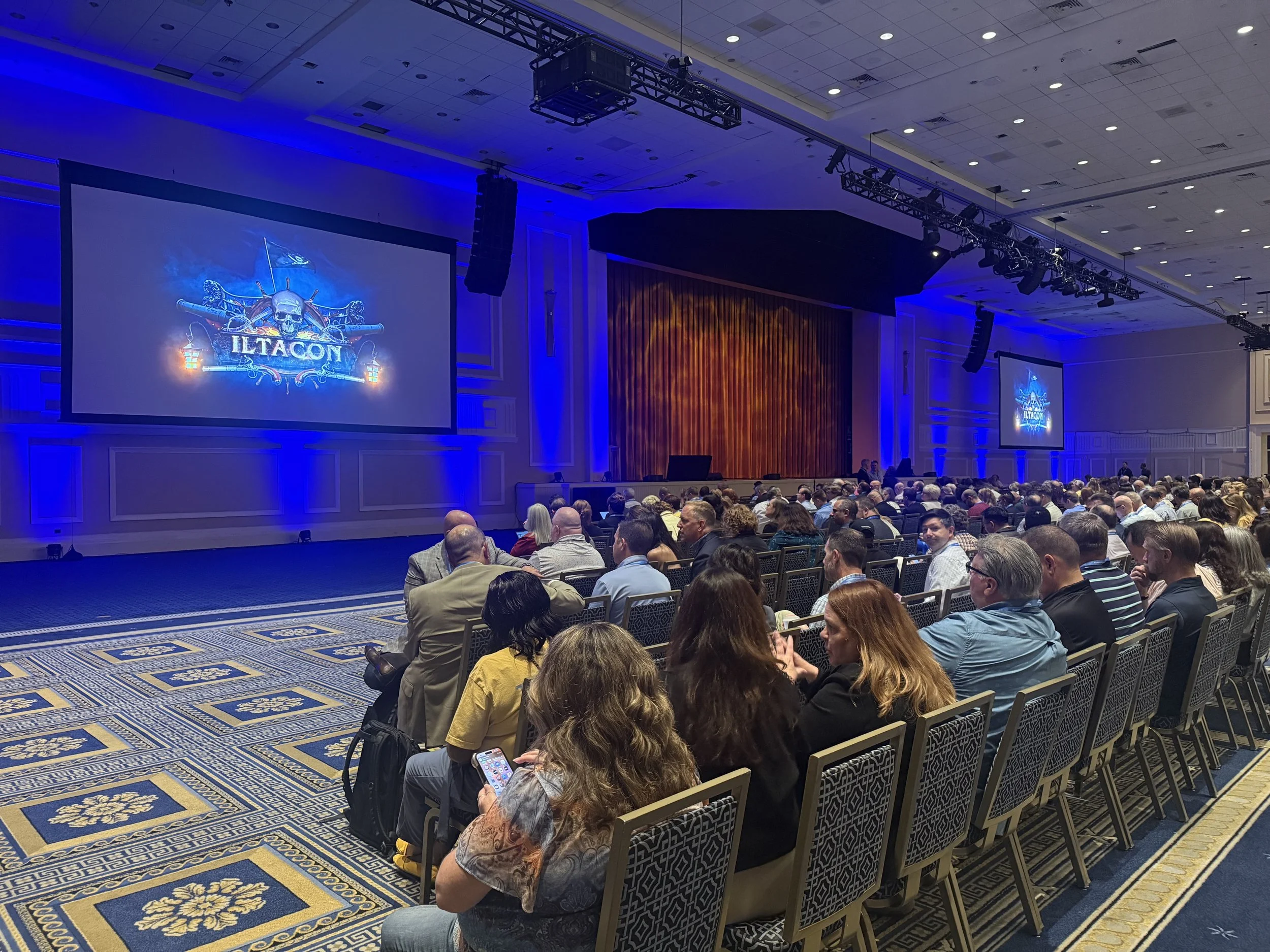🎙️ Ep. #131, Supercharging Litigation With AI: How StrongSuit Helps Lawyers Transform Research, Doc Review, and Drafting 💼⚖️
/My next guest is Justin McCallan, founder of StrongSuit, an AI-powered litigation platform built to transform how litigators handle legal research, document review, and drafting while keeping lawyers firmly in control. In this episode, Justin and I dig into practical, real-world workflows that solos, small firms, and big-firm litigators can use today and over the next few years to change the economics, pace, and strategy of litigation—without sacrificing accuracy, ethics, or the quality of advocacy.
Join Justin and me as we discuss the following three questions and more!
What are the top three ways litigators should be using AI tools like StrongSuit right now to change the economics and pace of litigation without sacrificing accuracy, ethics, or quality of advocacy?
What are the top three mistakes lawyers make when adopting AI for litigation, and what practical workflows help lawyers stay in the loop and use AI as a force multiplier instead of a risk?
Looking ahead to 2026 and beyond, what are the top three AI-driven workflows every litigator should master to stay competitive, and how can platforms like StrongSuit help build those capabilities into day-to-day practice?
In our conversation, we cover the following
00:00 – Welcome and guest introduction
Justin joins the show and shares his current tech setup at his desk.
00:00–01:00 – Justin’s current tech stack
Lenovo laptop, ultra-wide monitor, and regular use of StrongSuit, ChatGPT, and Gemini for different AI tasks.
Everyday tools: Microsoft Word and Power BI for analytics and fast decision-making.
01:00–02:00 – Android vs. iPhone for AI use
Why Justin has been on Android for 17 years and how UI/UX familiarity often drives device choice more than AI capability.
02:00–05:30 – Q1: Top three ways litigators should be using AI right now
Using AI for end-to-end legal research across 11 million precedential U.S. cases to build litigation outlines and identify key authorities.
Scaling document review so AI surfaces relevant documents and synthesizes insights while lawyers focus on strategy and judgment.
Leveraging AI for drafting and editing—improving style, clarity, and consistency beyond traditional spelling and grammar checks.
05:30–07:30 – StrongSuit vs. basic tools like Word grammar check
How StrongSuit aims to “up-level” a lawyer’s writing, not just catch typos.
Stylistic improvements, clarity enhancements, and catching subtle inconsistencies in legal documents.
06:00–08:00 – AI context limits and scaling doc review
Constraints of large models’ context windows (around ~1M tokens ≈ ~750 pages).
How StrongSuit runs multiple AI agents in parallel, each handling small page sets with heuristics to maintain cohesion and share insights.
08:00–09:00 – Handling tens of thousands of documents
How StrongSuit can handle between roughly 10,000–50,000 pages at a time, with the ability to scale further for enterprise matters.
09:00–11:30 – Origin story of StrongSuit
Why Justin saw a once-in-a-generation opportunity when large language models emerged and how law, with its precedent and text-heavy nature, is especially suited to AI.
StrongSuit’s focus on litigators: supporting lawyers from intake through trial while keeping them in the loop at every step.
11:30–13:30 – From intake to brief drafting in minutes
Generating full litigation outlines, research, and analysis in about ten minutes, then moving directly into drafting memos, briefs, complaints, and motions.
StrongSuit’s long-term goal: automating 50–99% of major litigation workflows by the end of 2026 while preserving lawyer control and judgment.
12:00–14:30 – How StrongSuit tackles hallucinations
Building a full database of all precedential U.S. cases enriched with metadata: parties, summaries, holdings, and more.
Validating citations by checking whether the Bluebook citation actually exists in StrongSuit’s case database before surfacing it to the user.
Why lawyers should still review cases on-platform before filing, even when AI has filtered out hallucinations.
14:30–16:30 – Coverage and jurisdictions
Coverage of all U.S. jurisdictions, federal and state, focused on precedential cases.
Handling most regulations from administrative agencies, and limits around local ordinances.
Uploading your own case files and using complaints and prior research as inputs into StrongSuit workflows.
15:00–17:00 – Security and confidentiality for litigators
SOC 2 compliance and industry-standard encryption at rest and in transit.
No model training on user data.
Optional end-to-end encryption that can even prevent developers from accessing case content, using local encryption keys.
16:30–20:30 – Q2: Top mistakes lawyers make when adopting AI for litigation
Mistake #1: Talking about AI instead of diving in with structured experiments and sanitized documents.
Using a framework to identify high-impact tasks: high volume, repetitive work, and heavy data/analysis (e.g., doc review, research, contract drafting).
How to shortlist tools: look for SOC 2, real product depth, awards, and a focus on your specific workflows.
Mistake #2: Expecting immediate mastery instead of moving through predictable adoption stages—from learning the tool, to daily use, to stringing workflows together.
20:30–22:30 – Building firm-wide AI workflows over time
Moving from isolated experiments to integrated, low-friction workflows, such as automatic intake-to-research pipelines.
Using client intake audio or transcripts to automatically extract facts, issues, and research paths.
22:30–24:30 – Time constraints and “no-time” lawyers
Why lawyers don’t need to be “technical” to use StrongSuit.
Reframing AI as text-based tools where lawyers’ writing skills and analytical thinking are assets, not obstacles.
24:00–26:00 – Practical workflows beyond intake
Using AI to prepare for expert depositions, including reviewing valuation analyses, flagging departures from market consensus, and generating targeted questions.
Reinforcing the value of AI-enhanced legal research and drafting as core litigation workflows.
26:00–29:30 – Q3: 2026 and beyond – AI-driven workflows every litigator should master
Rapid improvement of baseline models (e.g., jumping from single-digit to high double-digit performance on difficult benchmarks year over year).
The idea of “tipping points,” where small performance gains turn AI from marginally useful to essential in specific tasks.
Why legal research is a great training ground for understanding where AI excels, where it falls short, and how to divide labor between human and machine.
The value of learning basic prompting skills to get more from AI systems, even when platforms offer visual workflows.
29:30–32:30 – Will workflows actually change—or just get better?
Why Justin expects familiar litigation workflows (doc review, research, drafting) to remain structurally similar, but become far faster and more sophisticated.
AI agents handling the grind work while lawyers focus on synthesis, judgment, and strategy.
A future where “AI + lawyer vs. AI + lawyer” resembles high-level chess: same rules, but much deeper thinking on both sides.
32:30–End – Where to find Justin and StrongSuit
How to connect with Justin and learn more about StrongSuit’s litigation tools.
Resources
Connect with Justin
Justin McCallan on LinkedIn – https://www.linkedin.com/in/justin-mccallon/
StrongSuit website – https://www.strongsuit.com
Hardware mentioned in the conversation
Android smartphone – https://www.android.com
Lenovo laptop – https://www.lenovo.com
Software & Cloud Services mentioned in the conversation
ChatGPT – https://chat.openai.com
Gemini – https://gemini.google.com
Microsoft Power BI – https://powerbi.microsoft.com
Microsoft Word – https://www.microsoft.com/microsoft-365/word
StrongSuit AI litigation platform – https://www.strongsuit.com 🤖

























